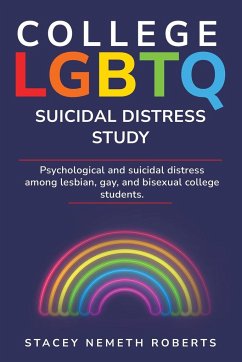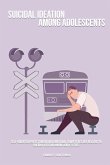This research examined the increased tendency towards suicidality in cisgender LGB college students as compared to their cisgender heterosexual counterparts. The responses of 1.503 LGB college students to a survey distributed by the National Research Consortium of Counseling Centers in Higher Education (RC) in 2011 were analyzed. Given the increased propensity toward suicidal distress in LGB college students, this struly sought to elucidate the mechanics by which suicidality evolves in this population. The objective of this project was to determine whether nunority stress factors (sexual orientation concerns, discrimination, victimization, and campus. climate) have a relationship with suicidal ideation in LGB college students as mediated by the interpersonal factors of thwarted belongingness, perceived burdensomeness, and sense of coherence. This project rested relationships drawn from the minority stress model, the interpersonal theory of suicide, as well as sense of coherence to understand their impact on the intensity of suicidal ideation in LGB college students. It was found that the stressors of sexual orientation concerns, victimization, and discrimination acted directly on thwarted belongingness and perceived burdensomeness. In addition, the stressors indirectly influenced suicidality through thwarted belongingness and perceived burdensomeness. Campus climate was found to be a protective factor for LGB students. Sense of coherence was not only a mediator of the stress factors, but also had a direct negative effect on thwarted belongingness and perceived burdensomeness. Implications for higher education administrators and campus mental health professionals, as well as directions for future research are also discussed.







